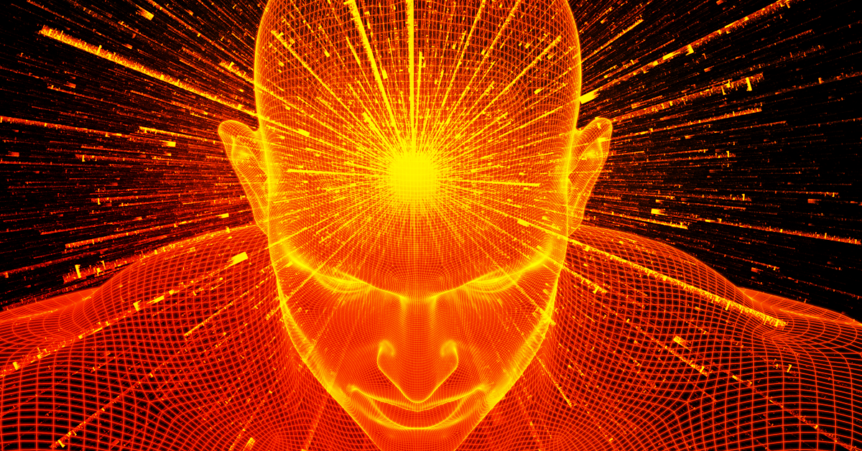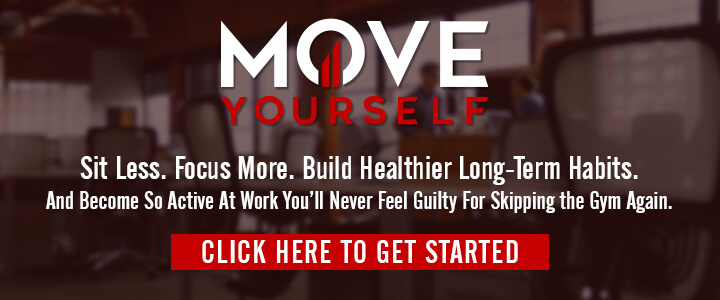I’ll bet if you’re reading this right now, you define yourself as a “creative.” What you do for a living is not just your job, it’s your identity.
Your creativity defines you.
While being highly creative has its blessings, it also comes with its share of curses, not the least of which is that high levels of creativity have been linked to attention problems as well as increased levels of anxiety and depression1. Mental health issues are unfortunately just part of the package for many creative people…including me.
When you define yourself by what you do, it’s easy to put “normal life” on the back burner and lose yourself in a project for days, weeks, or months at a time until you wake up one morning and realize you’re a shell of the person you used to be.
- You can barely get out of bed
- Simple tasks like laundry and paying bills seem overwhelming
- You’ve lost your creative passion (and you might even hate the job you used to love)
- You avoid family & friends
- You feel like you’re “broken”
In short…you’re burned out.
I have spent the last ten years and over $75,000 on self-experimentation obsessively searching for ways to optimize creative performance while also maintaining some semblance of a healthy & balanced life raising two young kids. After achieving levels of success in the Hollywood film industry I never could have dreamed of despite constantly fighting my own mental health demons, I can confidently tell you:
It just isn’t necessary to sacrifice yourself for the sake of your creative work and your career.
Welcome to a new way of living life as a “creative” based on science where you can achieve immense levels of personal and professional success because you prioritize your mental and physical health, not despite it.
Welcome to Optimize Yourself.
Everyone Has An “Origin Story.” Here’s Mine.
It was almost fifteen years ago, but I remember it like yesterday.
After working an endless string of 14-hour days, seven days per week for over a month editing a small independent film, I was severely depressed, creatively burnt out, and considering suicide. It was so bad that when my girlfriend asked me to take out the trash one morning, I broke down in tears.
I distinctly remembering sitting alone one late night in the dark thinking:
“I cannot live like this anymore.”
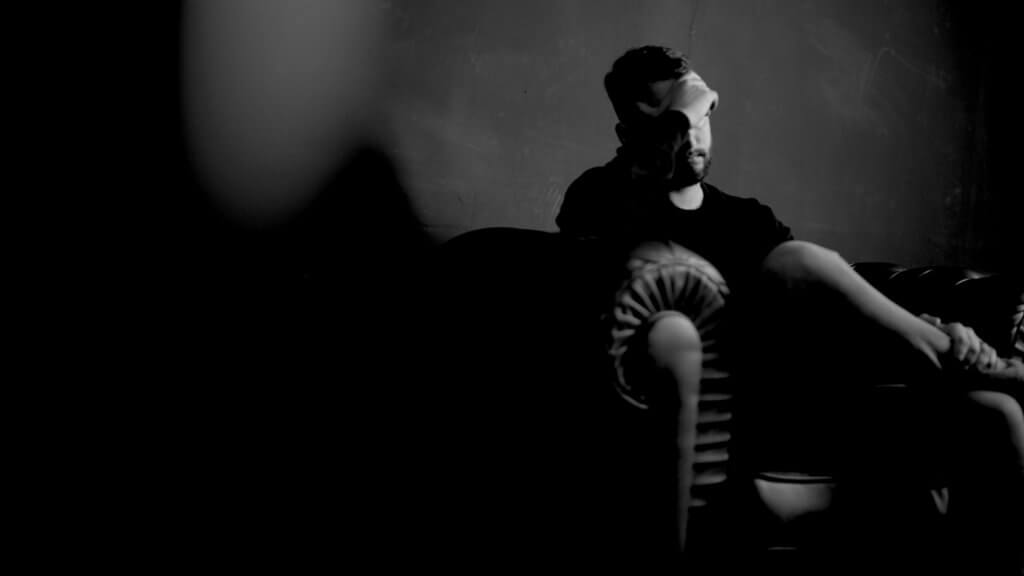
For the life of me I just couldn’t figure out why I was so exhausted all the time. It’s not like I was training for an Ironman triathlon, all I did was sit in front of a computer all day! That shouldn’t take that much energy…right?
It wasn’t until several years later that my entire life suddenly made sense after discovering this one shocking statistic:
Get this —> The human brain accounts for approximately 2% of your overall body weight, but it consumes over 25% of your energy.
Let me say that again…your brain burns over 25% of your energy.
I used to assume that because I sat in front of a computer doing creative work I should have plenty of energy left over since I wasn’t doing any physical activity.
I couldn’t have been more wrong.
Without consciously realizing it, I was making thousands of micro-decisions throughout the course of a long day which was sapping a tremendous amount of my energy (not to mention my willpower and motivation).
Couple that intense creative focus with being sedentary ALL THE TIME, eating a horrible diet, working 16-20 hours per day while wearing sleep deprivation as a badge of honor, and not properly managing my focus (I never took breaks and often forgot to eat), I was constantly running my brain on overdrive.
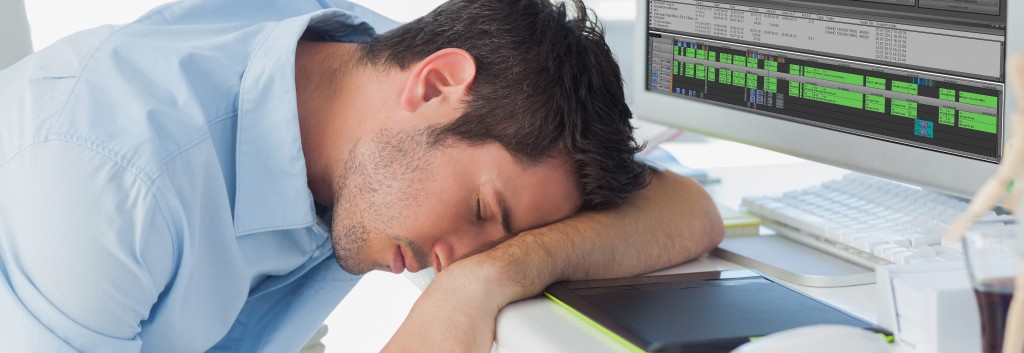
Hindsight is clearly 20/20: It’s no mystery now why I so often experienced severe depression, anxiety, horrible attention issues, and couldn’t make it through a single day without at least one nap.
Clearly I wasn’t paying attention during the safety instructions before every airplane flight I ever took in my life where I was told:
“In the event of a loss of cabin pressure, an oxygen mask will automatically appear in front of you. Pull the mask towards you, place it firmly over your nose and mouth, and breath normally. If you are traveling with someone who requires assistance, secure your own mask first, then assist the other person.”
Do you know why they ask you to put on your own oxygen mask first, even if you’re sitting next to a helpless child?
Because you can’t help others if you’re dead.
THE MINDSET SHIFT THAT CHANGED EVERYTHING
This simple four word phrase changed my entire outlook on life the first time I heard it and is the foundation of the Optimize Yourself philosophy:
“Everyone has a disability.”
The person who taught me this lesson and to whom I owe a debt of gratitude I will never be able to repay is my good friend Christopher Rush.
Christopher was no stranger to overcoming obstacles in his own life given he lived with spinal muscular atrophy, an unrelated brain tumor, AND that his doctor told his parents:
“Your son will be nothing more than a dishrag and be dead by the age of two.”
Despite his physical limitations, Christopher accomplishments include becoming:
- The first quadriplegic to become a licensed scuba diver (to this day I still carry his scuba license in my wallet)
- The national poster child for the Muscular Dystrophy Association
- The manager of his high school basketball team
- A University of Michigan graduate (with high honors)
- A law school graduate
Just imagine going through three years of law school and taking the bar exam without the use of your arms or hands. Yeah…no thanks.
Unfortunately Christopher passed away at the age of thirty but not before developing the GO FAR motivational framework designed to help those with disabilities overcome the obstacles in their lives to achieve their goals.
I made it my mission to share Christopher’s inspirational story with the world which led me to spend eight years of my life fundraising, producing, and directing the multiple award-winning documentary feature GO FAR: The Christopher Rush Story, narrated by Mark Hamill.
I remember one of the most impactful moments while I was writing GO FAR. I was watching Betacam newsreel footage of Christopher as a young kid, and a news reporter asked him the following question:
“If you could be doing something else besides sitting in that wheelchair, what would you like to be doing?”
The simplicity of his single-word response was blunt, powerful, and simply genius.
“Walking.”
Well…duh.
Despite never once taking a single step his entire life, Christopher was the first quadriplegic to become a licensed scuba diver.
The following is a sample scene from GO FAR: The Christopher Rush Story
Chris didn’t make excuses. He accepted his disabilities and simply modified the path to his goals.
That was the only difference between him and us.
So what’s your excuse now?
WHAT IT MEANS TO “OPTIMIZE YOURSELF”
Unlike most businesses that use deceptive marketing tactics to prey on your insecurities and weaknesses and trick you into buying their “miracle cures,” I take a very different approach.
I’m not going to be like the multibillion dollar fitness or diet industries and point out how fat, ugly, lazy, sexually inadequate, and utterly useless you are without their 90 day life-changing programs and products.
I created Optimize Yourself to help you recognize and appreciate the positive traits and skills you already have while also inspiring you to step just a little bit outside of your comfort zone to design the best version of yourself.
If what you desire is true lasting change, outside your comfort zone is where the magic truly happens.
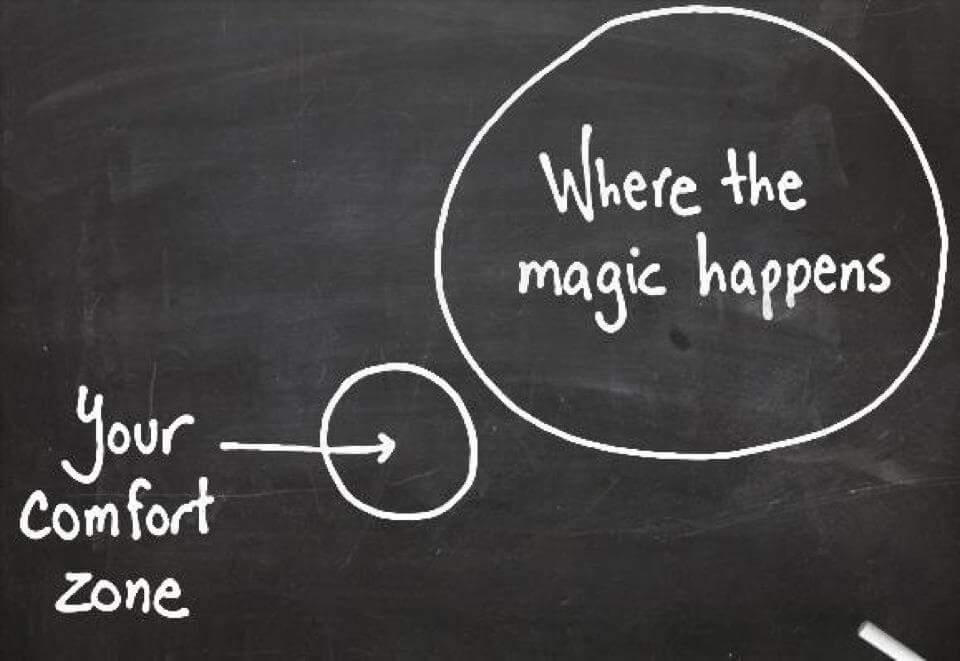
Optimizing yourself is about understanding your own limitations, recognizing (and accepting) your own disabilities, and then augmenting your strengths to become the strongest and most authentic version of your existing self…not trying to become someone you’re not.
WHERE SHOULD YOU START?
Below are the four main topics of interest I obsess over on a daily basis in my quest to achieve peak creative performance. I am far from an expert and continue to learn every single day. My job is to sift through the mountains of information available, share the best stuff that’s relevant to your journey, and ultimately shorten your learning curve.
Click on any heading or link for a full listing of podcasts and blog articles related to your topic of choice.
I used to think exercise and “staying fit” was all about burning calories, losing weight, and building muscle. The problem with that approach is that it takes a long time to see the effects of consistent exercise which discourages the vast majority of us from sticking with it, especially with crazy work schedules and a family. Plus nobody cares if sitting all day long might decrease their life expectancy might decrease from 88 years to 86 years and 6 months.
In today’s society, we demand immediate results.
What I discovered through years of trial and error was that rather than focusing solely on the long term benefits of exercising regularly, I instead started focusing on the immediate benefits that exercising and moving throughout my workday had on my energy levels, my creative output, and my ability to focus consistently.
It’s easy to get overwhelmed thinking about everything in your life that requires improvement, but in my opinion the very first domino you need to knock over is incorporating more consistent movement into your workday. There is nothing more detrimental to your creativity (and your overall mental and physical health) than being sedentary.
If you become more active during your workday all of the other dominos will then fall with infinitely less effort. That’s why I spent over a year designing the Move Yourself online learning course and activity video library.
Ask yourself a quick question and then answer honestly…are you truly productive every single day? Or do you spend most of your time simply looking busy but ultimately just spinning your wheels?
It’s time to stop working harder and start working smarter.
Many say we’re currently living in “The Technology Age,” others have called it “The Digital Age.” If you ask me, we live in “The Distraction Age.”
Aside from being sedentary, there is nothing more damaging to your creative ability than constantly battling distractions.
Whether it’s Facebook, Twitter, your overflowing email inbox, 38 open browser tabs, Snapchat or the 75 other ways we communicate nowadays, our brains have not evolved to the point where we can manage the amount of information we’re exposed to constantly throughout the workday.

Having battled ADD and attention issues my entire adult life, I can confidently say that focus is not an ability you are born with, it is a skill you can develop and strengthen over time.
Trust me, if I can get my laundry done, pay bills, empty the dishwasher, get my inbox to zero, and write this blog post all in a single day, anybody can develop focus if they know the proper steps.
If you’re interested in being a beta tester for my upcoming ‘Focus Yourself’ online course releasing in early 2018, click here to add your name to the waitlist.
Work-life balance is perhaps the greatest personal challenge many of us will face in the 21st century. In my opinion, balance is no different than a 3-legged stool:
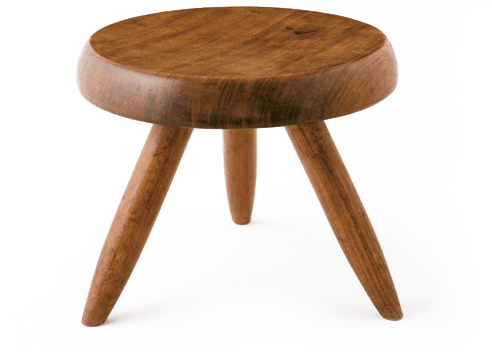
If you remove one leg of the stool (or even slightly shorten it), it can no longer stand.
The three legs of the stool I’m interested in helping you optimize are your diet, the stress in your life, and the quality of your sleep.
Food & Nutrition
To be crystal clear – I detest the word “diet.” I have no interested in telling you what and how you should be eating. What you put into your body is a very personal choice. But there are without a doubt certain foods that contribute heavily to brain fog, attention issues, anxiety, depression, and burnout. Conversely there are also foods that can help you maintain consistent energy and focus throughout your day.
Optimizing what you eat is therefore not about counting calories or fitting into your “skinny jeans” again, it’s about fueling your creativity and increasing your mental stamina.
Stress
Saying most creative jobs are stressful would be a gross understatement. Unlike “9 to 5” jobs where you punch a clock no matter what you accomplish, as creative professionals we work until the job is done and we hit our deadlines on time. If that means working longer hours due to setbacks, distractions, or spending half our day putting out fires, so be iteven if that means completely sacrificing our mental health.
In order to manage the non-stop nature of working a creative job it’s necessary to optimize your ability to manage stress, otherwise you will constantly be in “reaction mode” which makes it nearly impossible to focus and generate creative ideas consistently.
Sleep
Getting quality sleep is the cornerstone of creativity. Without it we don’t recover, we don’t learn new skills, our bodies and brains don’t detoxify, and we don’t synthesize and store memories. Yet it is not uncommon in many creative professions to proudly wear a “Sleep Deprivation Badge of Honor” and boast how much you got done and how little you slept the night before.
Think about this for a second…how would you react to a colleague coming into work drunk every day? If you chronically get 6 or less hours of sleep per night, your cognitive scores are the equivalent of being legally drunk. Consider that before pulling your next all-nighter.
If you have any intention of building a lasting career as a creative professional and not constantly crashing & burning in the process, optimizing your sleep must become a top priority.
Unlike becoming a doctor or lawyer, in most creative professions there is no singular roadmap to success where if you follow along and stick with the system you’ll land your dream job. This lack of control is frankly terrifying for most people.
It’s entirely possible that you can spend over $100,000 on a master’s degree in filmmaking, graphic design, writing, directing, or many other creative professions and end up becoming an executive assistant, or even switching careers altogether after failing to get your foot in the door. All because nobody teaches you how to properly set your goals (and achieve them).
The secret I’ve discovered after years of research and interviewing countless high performers in creative industries is that there is a clear set of fundamental steps anyone can follow to achieve success in their creative career despite there being no clear roadmap.
Instead of waiting for someone to give you all the answers and tell you exactly what path leads to success, the key is to learn the necessary skills that allow you to forge your own unique path.
IT’S TIME TO TAKE YOUR FIRST STEP
Now that you understand the philosophy behind Optimize Yourself and what the program covers, it’s time to take some action.
You can surf the web all you want and bookmark an endless stream of blog posts giving you “The Top 5 Ways to Magically Solve Every Problem In Your Life and Live In Bliss For Eternity…Without Putting In Any Effort,” or you can take one single concrete step towards lasting change right now.
Knowledge is only power when accompanied by action.
Your first action step is to download your FREE ‘Ultimate Guide to Optimizing Your Creativity’ and choose just one action you can take today to build momentum and start designing the optimized version of yourself.
Let me know in the comments below…where do you plan to start?

